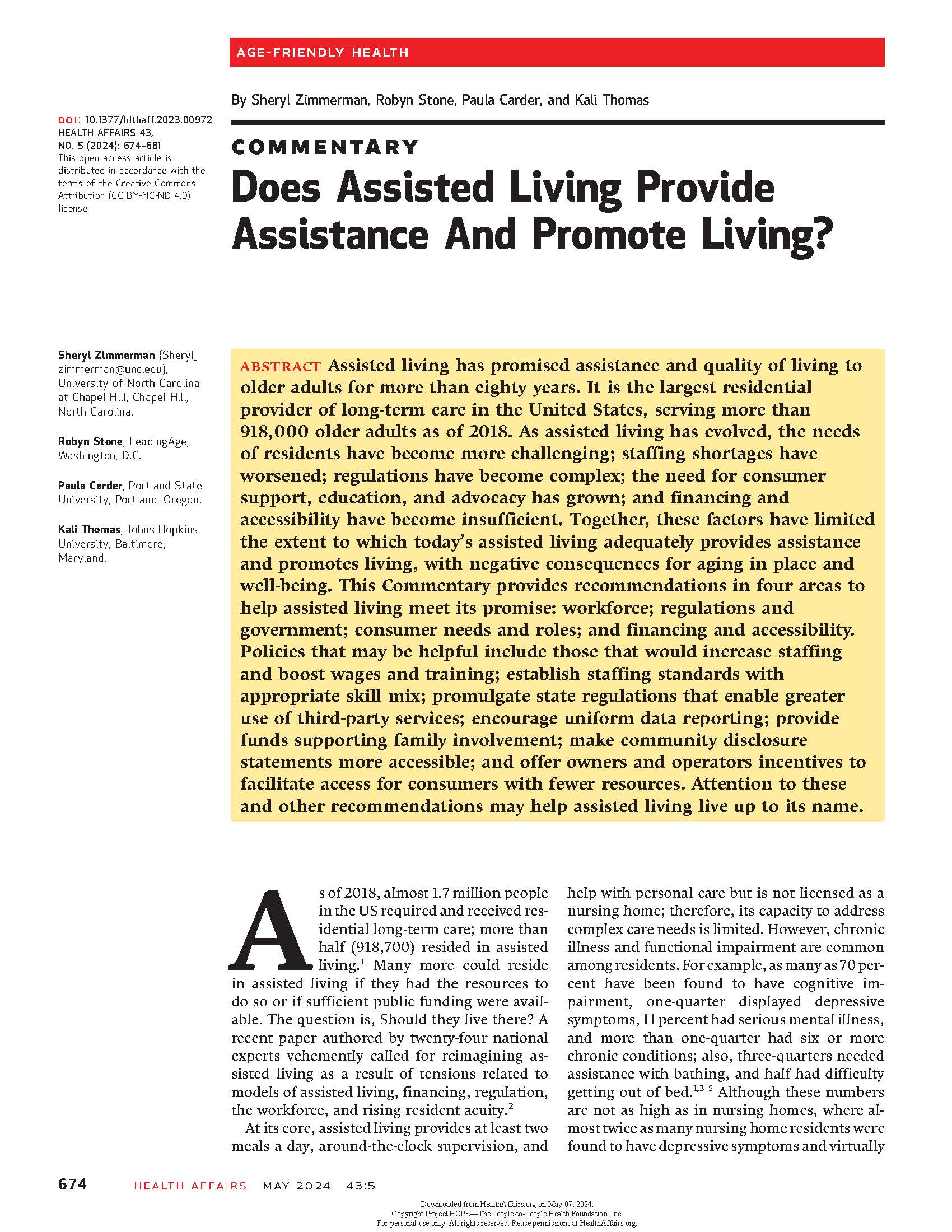Assisted living communities are the final home for many of their residents, most of whom are older, frail, and cognitively or functionally impaired. Yet little is known about end-of-life care in this setting. We examined associations of both death at home and home hospice care with individual characteristics, such as race or ethnicity and dual Medicare-Medicaid enrollment; community characteristics; and the stringency of state-level assisted living regulations. Of the 100,783 fee-for-service Medicare beneficiaries residing in 16,560 assisted living communities who died in 2018–19, almost 60 percent died at home, 84 percent of them with home hospice. In predicting the likelihood of death at home, dual Medicare-Medicaid enrollment was more important than race or ethnicity; in contrast, race was a stronger predictor than dual enrollment for hospice care at death. Residents were less likely to die at home or with home hospice in states with lower regulatory stringency regarding assisted living communities. These findings may help inform efforts to ensure equitable access to desired end-of-life care in this setting and suggest an important role for state-level regulation.

Center for Excellence in Assisted Living CEAL@UNC
Advancing the well-being of the people who live and work in assisted living through research, practice, and policy.

